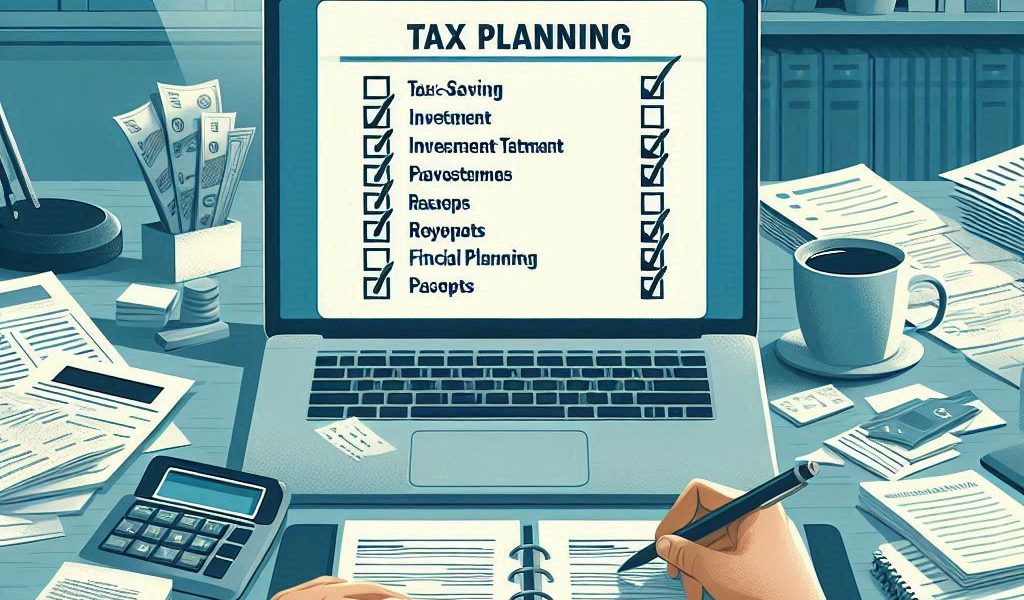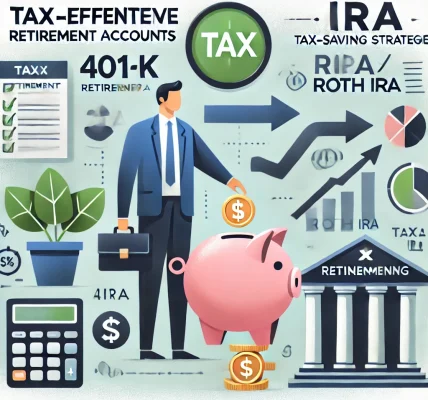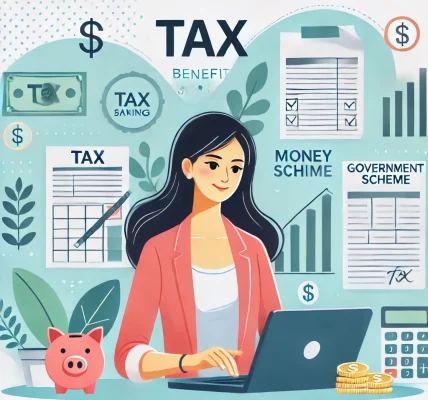Tax planning is an essential aspect of personal financial management. When done correctly, it can significantly reduce your tax liability and increase your savings. However, many individuals make common mistakes that could result in higher taxes and missed opportunities for tax-saving investments.
In this guide, we will explore some of the most common mistakes people make during tax planning and provide practical tips to avoid them. By following these strategies, you can ensure that you are maximizing your tax benefits and securing a better financial future.
1. Not Starting Tax Planning Early
One of the biggest mistakes people make is waiting until the end of the financial year to start planning their taxes. Procrastinating can limit your options for making tax-saving investments and leave you scrambling to find solutions at the last minute.
How to Avoid It:
- Start your tax planning at the beginning of the financial year. This gives you ample time to make informed decisions and explore various tax-saving options.
- Set aside time to review your income, expenses, and potential deductions to identify where you can optimize your tax situation.
2. Ignoring Tax-Advantaged Investment Options
There are several investment options available under Section 80C, Section 80D, and other sections of the Income Tax Act that can help reduce your taxable income. Common tax-saving instruments include PPF, EPF, ELSS, National Savings Certificates (NSC), and health insurance premiums.
How to Avoid It:
- Invest in tax-saving instruments that suit your financial goals. For example, if you’re looking for long-term growth, Equity-Linked Savings Schemes (ELSS) may be a good option.
- Make sure to contribute up to the maximum limits of these sections, such as ₹1.5 lakh for Section 80C and ₹50,000 for Section 80D (for senior citizens).
- Diversify your investments between different options based on your risk appetite and financial objectives.
3. Not Claiming Deductions You Are Eligible For
Many taxpayers fail to claim deductions they are entitled to, either due to a lack of awareness or because they find the process too complicated. For example, deductions for home loan interest, education loan interest, and donations to charity are often overlooked.
How to Avoid It:
- Stay informed about the deductions you qualify for. Keep track of your eligible expenses throughout the year to avoid missing out.
- Use tax-saving tools like Section 80E for education loans and Section 80G for donations.
- Keep a record of all receipts, bills, and documents related to deductible expenses to make the filing process smoother.
4. Failing to Adjust to Changing Tax Laws
Tax laws can change every year, and what worked in one financial year may not be applicable in the next. For example, the government may change the deduction limits or introduce new tax-saving schemes. Not staying updated on these changes could lead to missed opportunities.
How to Avoid It:
- Regularly review updates to the Income Tax Act to ensure that you are taking full advantage of any new provisions or changes.
- Follow credible financial news sources, consult tax professionals, or use tax-planning tools to stay informed about the latest tax laws.
- If there are significant changes, adjust your tax planning strategy accordingly to maximize savings.
5. Overlooking Tax Planning for Your Family
Tax planning shouldn’t just be about you—it’s also essential to consider the financial situation of your spouse, children, and parents. By planning tax-saving investments for the entire family, you can increase your overall deductions and reduce the family’s tax burden.
How to Avoid It:
- Ensure that your spouse, children, and parents are also making use of tax-saving instruments. For example, if your spouse is a working professional, they can also invest in tax-saving instruments like PPF or ELSS.
- Consider health insurance for your parents, as premiums paid for senior citizens qualify for tax deductions under Section 80D.
- Make sure to claim deductions for tuition fees paid for your children’s education under Section 80C.
6. Not Taking Advantage of Tax-Free Income
Certain income, such as interest from PPF, dividends, and long-term capital gains (up to ₹1 lakh), is tax-free under the Income Tax Act. Failing to take advantage of such income could result in higher taxable income and unnecessary taxes.
How to Avoid It:
- Invest in tax-free instruments like PPF, NPS (up to ₹50,000 additional deduction), and tax-free bonds.
- Be mindful of the exemptions for long-term capital gains on equity investments and tax-free interest from government schemes like National Savings Certificate (NSC).
7. Neglecting to Keep Tax Records Organized
Many taxpayers face difficulties when it comes time to file their taxes because they haven’t kept their records organized. This can lead to mistakes and missed opportunities for deductions or credits.
How to Avoid It:
- Maintain an organized system for storing important documents, such as receipts, insurance premium payments, investment statements, and medical bills.
- Use digital tools or apps to track your expenses and investments in real time. This makes it easier to monitor and claim deductions come tax season.
- If possible, consult a tax professional to ensure your tax records are in order and that you’re maximizing your deductions.
8. Underestimating the Importance of Tax Planning for Retirement
While tax planning is often focused on immediate savings, it’s also essential to think about your retirement. Instruments like the National Pension Scheme (NPS) offer significant tax benefits that can help you build a retirement corpus while saving on taxes.
How to Avoid It:
- Invest in NPS to avail an additional ₹50,000 tax deduction (under Section 80CCD(1B)) over and above the ₹1.5 lakh under Section 80C.
- Consider other long-term, tax-efficient investments to build your retirement savings, such as PPF or EPF.
Conclusion: Start Planning and Avoid the Mistakes
Tax planning is a crucial element of personal finance management. By avoiding these common mistakes and staying informed, you can make smarter decisions, reduce your tax liability, and increase your savings.
Key Takeaways:
- Start planning early and stay updated on tax laws.
- Take full advantage of eligible deductions under various sections of the Income Tax Act.
- Organize your tax records and consider tax planning for your entire family.
- Plan for retirement and use tax-efficient investment options to maximize long-term savings.
By implementing these strategies, you can ensure that your tax planning is effective and aligns with your financial goals. Start early, stay organized, and make informed decisions to make the most of your hard-earned money.




